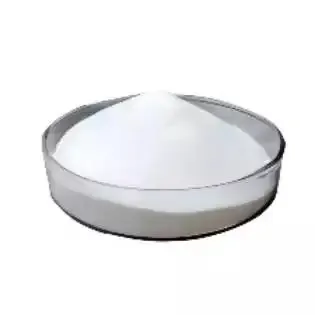Warning: Undefined array key "title" in /home/www/wwwroot/HTML/www.exportstart.com/wp-content/themes/1198/header.php on line 6
Warning: Undefined array key "file" in /home/www/wwwroot/HTML/www.exportstart.com/wp-content/themes/1198/header.php on line 7
Warning: Undefined array key "title" in /home/www/wwwroot/HTML/www.exportstart.com/wp-content/themes/1198/header.php on line 7
Warning: Undefined array key "title" in /home/www/wwwroot/HTML/www.exportstart.com/wp-content/themes/1198/header.php on line 7
- Afrikaans
- Albanian
- Amharic
- Arabic
- Armenian
- Azerbaijani
- Basque
- Belarusian
- Bengali
- Bosnian
- Bulgarian
- Catalan
- Cebuano
- China
- China (Taiwan)
- Corsican
- Croatian
- Czech
- Danish
- Dutch
- English
- Esperanto
- Estonian
- Finnish
- French
- Frisian
- Galician
- Georgian
- German
- Greek
- Gujarati
- Haitian Creole
- hausa
- hawaiian
- Hebrew
- Hindi
- Miao
- Hungarian
- Icelandic
- igbo
- Indonesian
- irish
- Italian
- Japanese
- Javanese
- Kannada
- kazakh
- Khmer
- Rwandese
- Korean
- Kurdish
- Kyrgyz
- Lao
- Latin
- Latvian
- Lithuanian
- Luxembourgish
- Macedonian
- Malgashi
- Malay
- Malayalam
- Maltese
- Maori
- Marathi
- Mongolian
- Myanmar
- Nepali
- Norwegian
- Norwegian
- Occitan
- Pashto
- Persian
- Polish
- Portuguese
- Punjabi
- Romanian
- Russian
- Samoan
- Scottish Gaelic
- Serbian
- Sesotho
- Shona
- Sindhi
- Sinhala
- Slovak
- Slovenian
- Somali
- Spanish
- Sundanese
- Swahili
- Swedish
- Tagalog
- Tajik
- Tamil
- Tatar
- Telugu
- Thai
- Turkish
- Turkmen
- Ukrainian
- Urdu
- Uighur
- Uzbek
- Vietnamese
- Welsh
- Bantu
- Yiddish
- Yoruba
- Zulu
Nov . 10, 2024 07:55 Back to list
Exploring the Uses and Benefits of Industrial Propylene Glycol in Various Industries
Industrial Propylene Glycol An Overview
Propylene glycol (PG), chemically known as propane-1,2-diol, is a colorless, odorless, and hygroscopic liquid that has become an essential compound across various industries. Its unique properties and versatility make it a preferred choice in applications ranging from food and pharmaceuticals to cosmetics and industrial usages. In this article, we will explore the production, applications, and benefits of industrial propylene glycol.
Production of Propylene Glycol
Propylene glycol is primarily produced through two processes the hydration of propylene oxide and the catalytic hydrogenation of glycerol. The former method involves the reaction of propylene oxide with water, resulting in propylene glycol. This process is more commonly used in industrial settings due to its efficiency and the higher purity of the final product.
The raw materials for producing propylene glycol are derived from petroleum and natural gas. Given the increasing concern regarding sustainability and environmental impact, there has been a growing focus on developing bio-based propylene glycol derived from renewable resources. This shift not only promotes sustainability but also aligns with the increasing consumer demand for eco-friendly products.
Applications of Propylene Glycol
The applications of industrial propylene glycol are vast and diverse. Some of the most prominent uses include
1. Food Industry Propylene glycol is commonly used as a food additive, functioning as a humectant, solvent, and preservative. It helps retain moisture in food products and enhances flavors, making it a staple in the production of baked goods, frostings, and sauces.
2. Pharmaceuticals In the pharmaceutical industry, propylene glycol is utilized as a solvent for oral, injectable, and topical drugs. Its ability to dissolve both hydrophilic and lipophilic substances makes it ideal for drug formulations. Moreover, propylene glycol is also employed in the manufacturing of creams and ointments, improving their consistency and effectiveness.
industrial propylene glycol

3. Cosmetics and Personal Care The cosmetic industry also benefits from the properties of propylene glycol, where it is used in lotions, shampoos, and deodorants. It acts as a moisturizer, prevents the separation of ingredients, and enhances the texture of cosmetic products.
4. Industrial Applications Propylene glycol is widely used in industrial applications, including the production of antifreeze and de-icing solutions for vehicles and aircraft. Moreover, it is employed in the manufacturing of plastics, resins, and as a coolant in refrigeration systems.
5. Chemical Intermediate As a chemical intermediate, propylene glycol is utilized in the synthesis of various compounds, including plastics, surfactants, and pharmaceuticals. Its role as a building block in chemical synthesis underscores its importance to the chemical manufacturing sector.
Benefits of Propylene Glycol
The advantages of using propylene glycol in industrial applications are numerous. One of its significant benefits is its low toxicity, which makes it an ideal alternative to other solvents that may pose health risks. This attribute allows for its use in products intended for human consumption or contact.
Additionally, propylene glycol's ability to remain stable over a wide range of temperatures makes it a reliable compound in numerous applications. Its hygroscopic nature helps in retaining moisture, ensuring product longevity and quality.
Moreover, with the increasing regulatory demands for safer and more sustainable chemicals, propylene glycol’s bio-based alternatives offer an eco-friendly option that can meet market needs while reducing environmental impact.
Conclusion
In summary, industrial propylene glycol is a versatile compound with essential applications across various sectors, including food, pharmaceuticals, cosmetics, and industrial processes. Its production methods are evolving towards more sustainable practices, aligning with the growing demand for eco-friendly solutions. With its low toxicity and stability, propylene glycol remains a vital ingredient in numerous products, underscoring its significance in modern industry. As industries continue to innovate and adapt to new challenges, propylene glycol will likely remain an indispensable resource in the years to come.
Latest news
-
Certifications for Vegetarian and Xanthan Gum Vegetarian
NewsJun.17,2025
-
Sustainability Trends Reshaping the SLES N70 Market
NewsJun.17,2025
-
Propylene Glycol Use in Vaccines: Balancing Function and Perception
NewsJun.17,2025
-
Petroleum Jelly in Skincare: Balancing Benefits and Backlash
NewsJun.17,2025
-
Energy Price Volatility and Ripple Effect on Caprolactam Markets
NewsJun.17,2025
-
Spectroscopic Techniques for Adipic Acid Molecular Weight
NewsJun.17,2025

